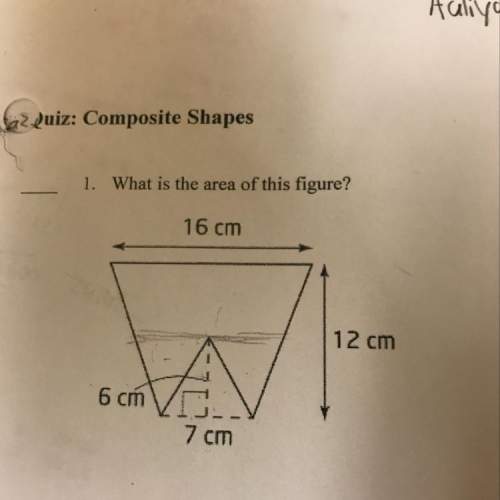
Mathematics, 20.08.2021 01:00 Okaytashy
Based on the above information, conjecture which of the statements is ALWAYS true,
which is SOMETIMES true, and which is NEVER true?
1. The sum of a rational number and a rational number is rational.
2. The sum of a rational number and an irrational number is irrational.
3. The sum of an irrational number and an irrational number is irrational.
4. The product of a rational number and a rational number is rational.
5. The product of a nonzero rational number and an irrational number is irrational.
6. The product of an irrational number and an irrational number is irrational.


Answers: 1
Another question on Mathematics

Mathematics, 21.06.2019 16:00
Which term best describes the association between variables a and b? no association a negative linear association a positive linear association a nonlinear association a scatterplot with an x axis labeled, variable a from zero to ten in increments of two and the y axis labeled, variable b from zero to one hundred forty in increments of twenty with fifteen points in a positive trend.
Answers: 3

Mathematics, 21.06.2019 18:10
Yuto and hila attempted to solve the same inequality. their work is shown below. which statement is true about the work shown above? yuto is correct because he isolated the variable correctly and reversed the inequality symbol. yuto is incorrect because he should not have reversed the inequality symbol. hila is correct because she isolated the variable correctly and reversed the inequality symbol. hila is incorrect because she should not have reversed the inequality symbol.
Answers: 2

Mathematics, 21.06.2019 18:30
Two cyclists 84 miles apart start riding toward each other at the same. one cycles 2 times as fast as the other. if they meet 4 hours later, what is the speed (in mi/h) of the faster cyclist?
Answers: 1

Mathematics, 21.06.2019 20:20
Abag contains 3 red marbles, 2 blue marbles, and 2 green marbles. one marble is picked, then another marble. assume that the selections are made with replacement. a) find the probability of picking two red marbles with replacement. b) find the probability of picking a red marble and a blue marble. assume the selections are made without replacement. c) find the probability of picking two red marbles without replacement. d) find the probability of picking a red marble and a blue marble without replacement.
Answers: 1
You know the right answer?
Based on the above information, conjecture which of the statements is ALWAYS true,
which is SOMETI...
Questions

Chemistry, 09.07.2019 13:30

Biology, 09.07.2019 13:30

Chemistry, 09.07.2019 13:30



English, 09.07.2019 13:30

History, 09.07.2019 13:30

Biology, 09.07.2019 13:30

History, 09.07.2019 13:30




History, 09.07.2019 13:30

Chemistry, 09.07.2019 13:30

Social Studies, 09.07.2019 13:30


Health, 09.07.2019 13:30

Mathematics, 09.07.2019 13:30

Health, 09.07.2019 13:30




